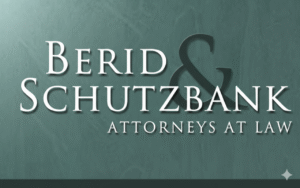When couples divorce in Massachusetts, one of the most important financial questions that arises is what happens to retirement accounts. Whether you have a pension, 401(k), IRA, or another type of retirement plan, these assets are often among the largest marital holdings with the exception of the marital home. Dividing retirement assets can be complex. Understanding how Massachusetts law treats retirement accounts helps ensure a fair and legally sound outcome.
Are Retirement Accounts Considered Marital Property in Massachusetts?
Under Massachusetts law, all property owned by either spouse—whether held jointly or individually—can be considered marital property if acquired during the marriage. This includes retirement accounts. Even if a retirement plan is in only one spouse’s name, the portion earned or contributed during the marriage is subject to equitable distribution, meaning it must be divided fairly, though not necessarily equally.
For example, if one spouse had a 401(k) before marriage but continued to contribute to it during the marriage, only the contributions and growth made during the marriage would typically be divided in the divorce. The funds accumulated before the marriage may remain that spouse’s separate property.
How Are Retirement Accounts Divided in a Massachusetts Divorce?
The division of retirement assets depends on the type of account:
- Employer-sponsored plans (401(k), 403(b), pensions): These plans usually require a Qualified Domestic Relations Order (QDRO) to legally divide the account and transfer funds without penalties or taxes.
- Individual Retirement Accounts (IRAs): These can typically be divided through the divorce judgment without a QDRO, but the transfer must comply with IRS rules to avoid early withdrawal penalties.
- Pensions: Valuing pensions can be complex, as they represent future income rather than a current balance. Actuarial experts may be needed to calculate the present value of the pension benefits.
What is a QDRO and why is it Important?
A Qualified Domestic Relations Order (QDRO) is a court order that directs a retirement plan administrator to divide one spouse’s benefits and pay the other spouse their share. Without a valid QDRO, even a clear divorce agreement may not be enforceable. A properly drafted QDRO protects both spouses’ interests, avoids unnecessary tax consequences, and ensures compliance with federal and state law.
What About Taxes and Penalties?
Taxes and potential penalties must be carefully considered when dividing retirement accounts. If funds are transferred directly between retirement plans as part of a divorce, taxes and early withdrawal penalties can usually be avoided. However, if the receiving spouse withdraws funds rather than transferring them to another retirement account, those funds may be taxed as income and could trigger early withdrawal penalties if the recipient is under 59½. One exception to the early withdrawal penalty (10%) is when a spouse receiving money from the other party’s 401 (k) is withdrawn at the time of the transfer pursuant to the divorce. While the withdrawal by the receiving spouse (called the Alternate Payee) is an exemption from early withdrawal penalties, the taxes on the money taken out and not put into an appropriate retirement account or vehicle will still need to be paid.
How Can You Protect Your Retirement Interests During Divorce?
Dividing retirement assets fairly requires a complete understanding of each account’s structure, value, and tax treatment. Working with a Massachusetts divorce attorney experienced in financial and property division ensures that your rights are protected, proper procedures are followed, and future retirement security is not compromised.
If you are going through a divorce in Massachusetts and need guidance on how your retirement accounts will be divided, contact our office today. An experienced family law attorney can help you navigate the process, prepare the necessary legal orders, and ensure that your financial future is protected. Attorney Schutzbank is happy to discuss any concerns you have about your retirement account or other division of assets during a divorce.





